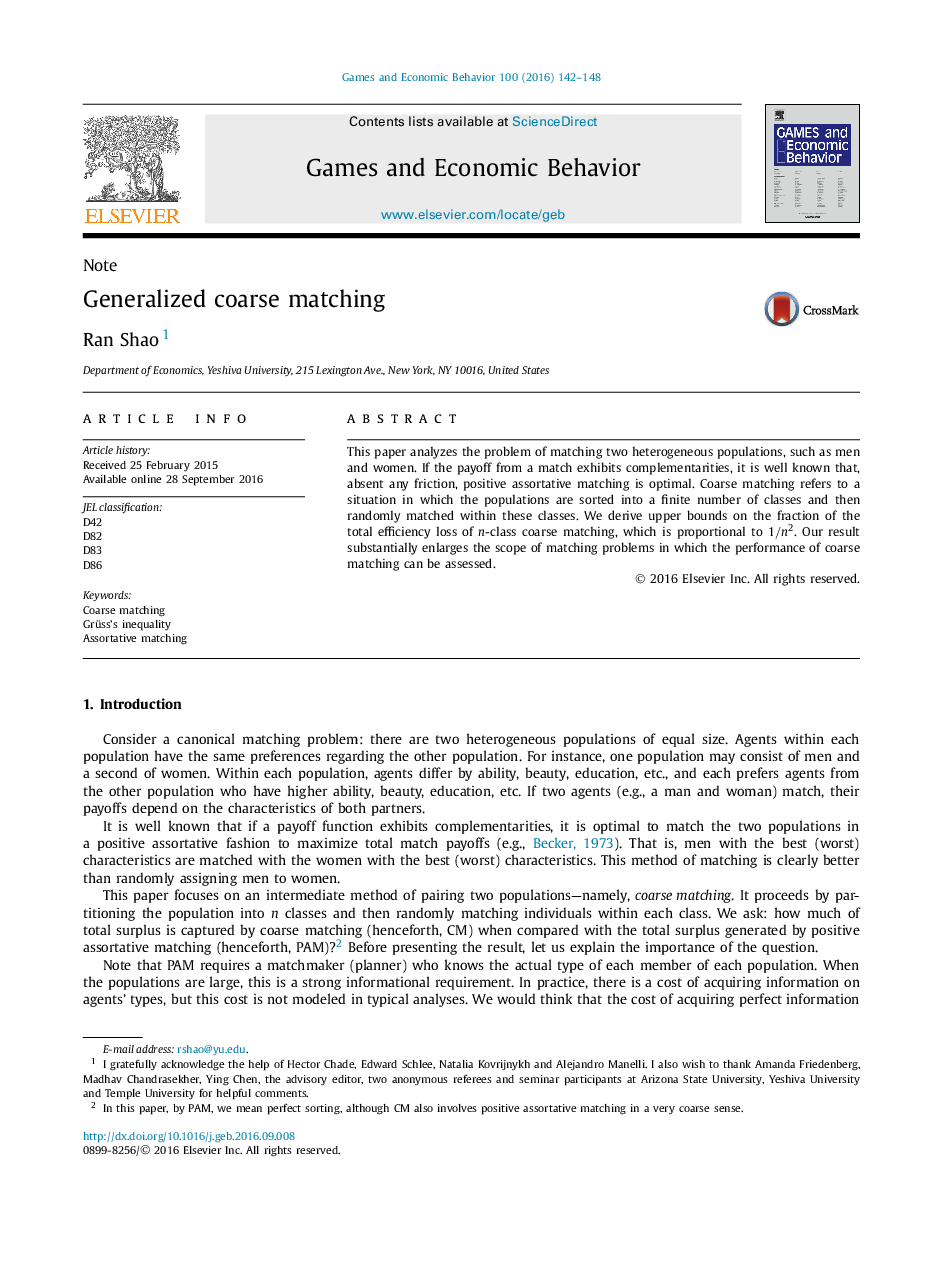| Article ID | Journal | Published Year | Pages | File Type |
|---|---|---|---|---|
| 5071464 | Games and Economic Behavior | 2016 | 7 Pages |
Abstract
This paper analyzes the problem of matching two heterogeneous populations, such as men and women. If the payoff from a match exhibits complementarities, it is well known that, absent any friction, positive assortative matching is optimal. Coarse matching refers to a situation in which the populations are sorted into a finite number of classes and then randomly matched within these classes. We derive upper bounds on the fraction of the total efficiency loss of n-class coarse matching, which is proportional to 1/n2. Our result substantially enlarges the scope of matching problems in which the performance of coarse matching can be assessed.
Keywords
Related Topics
Social Sciences and Humanities
Economics, Econometrics and Finance
Economics and Econometrics
Authors
Ran Shao,
